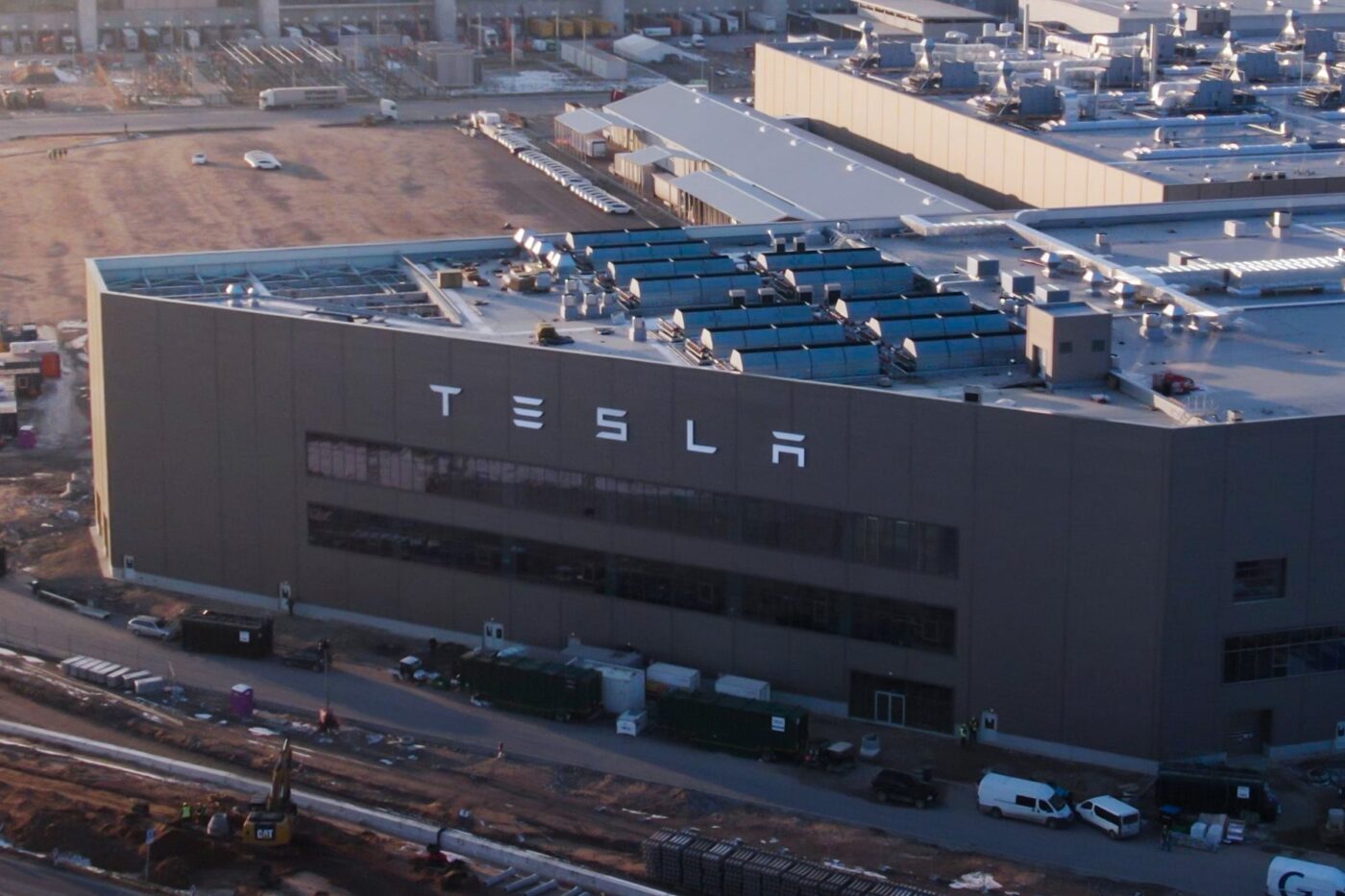Tesla plant in Grünheide is back online sooner than expected
There’s news from the Tesla plant in Grünheide. After the local broadcaster RBB, in an earlier report, expected electricity to be restored this week, there has been an update. Energy supplier Edis has been working in three-shifts over the past few days to reconnect Tesla to the grid following the arson attack on a power pole, and the engineers succeeded.
On Monday evening, it was announced that the work was complete: “The power supply to the Gigafactory was restored a few minutes ago,” wrote plant manager Andre Thierig on LinkedIn at around 9:30 pm. He continued: “The measures to restart the plant are now running at full speed under all safety precautions. It will certainly take some time before we have fully resumed production, but the most important step has been taken!”
Highest law enforcement authority takes over
As reported, there was an arson attack on the electricity pole around ten kilometres from the Tesla site early Tuesday morning, causing the Gigafactory and six surrounding communities to lose power. Production has been at a standstill since and employees were sent home. Just hours after the attack, the self-proclaimed “Volcano Group,” a left-wing extremist network, claimed responsibility for the attack. The police have confirmed the authenticity of the letter of confession.
Initially, the public prosecutor’s office in Frankfurt (Oder) took over the investigation into anti-constitutional sabotage, disruption of public businesses and arson. In the meantime, the Federal Public Prosecutor’s Office – the highest criminal prosecution authority in Germany – has taken over the case. A spokeswoman told the Associated Press that there was initial suspicion that a terrorist organisation was involved.
Meanwhile, the polarisation surrounding the attack on the plant’s power supply is increasing. Part of the Tesla workforce demonstrated solidarity with their employer in the form of a rally on Friday. Over the weekend, there were demonstrations in Grünheide in favour of and against the production facility.
Meanwhile, Brandenburg’s Minister of Economic Affairs Jörg Steinbach (SPD) said on rb24 Inforadio that it is currently being examined whether the authorisation for the protest camp in the forest near Grünheide will be extended beyond mid-March. Environmental activists are occupying a piece of forest there that Tesla could use to expand its site. Steinbach said he was against it – and justified this by saying that the camp “attracts protesters from all over Germany.” Steinbach said that the attack on the Tesla plant’s power supply would probably not have happened without media attention.
Resistance to expansion plans
Since Thursday, environmental activists have occupied part of the forest, which will be cleared if the plant area is expanded. It has been clear for at least three weeks that Tesla is facing resistance to the plans to expand its factory. In mid-February, the citizens of Grünheide rejected an expansion of the factory site by a majority vote.
Tesla wants to build a freight depot, warehouses and a company daycare centre on an additional 170 hectares alongside the existing 300-hectare factory site. The plans were made public in 2022. The referendum focussed on these new areas, but Tesla also wants to expand the plant on the existing factory site. However, the latter was explicitly not put to the vote.
In February, precisely what would happen after the vote was still unclear. According to media reports, the vote is not legally binding. Still, Grünheide’s mayor, Arne Christiani, said that the rejected development plan would no longer be presented to the municipal representatives in its current form. City representatives will again meet on 14 March and 16 May. In addition, the state parliament’s finance committee would have to approve the sale of the land by Brandenburg’s state forestry organisation.
As reported, Tesla wants to double its production capacity in Grünheide from 500,000 units to one million EVs per year and, according to Brandenburg’s Ministry of the Environment, is also planning to “increase battery storage production capacity from the current 50 to 100 gigawatt-hours per year in the future.” The latter also includes the production of battery cells.
rbb24.de (power supply; in German), apnews.com, twitter.com, rbb24.de (in German)





0 Comments